I’m sure you’ve heard stories about poultry farmers making millions in the country. But is poultry farming in Kenya really profitable?
Poultry farming in Kenya is a profitable venture. However, you must observe best practices and strategize to keep up with the costs and returns. Some of the best-performing breeds include layers, broilers, and Kienyeji chickens.
With the current shortage of egg supply and increased demand, the few poultry farmers in Kenya are reaping huge.
Again, the festivities are almost here, and the demand for chicken meat will spike significantly. So, you can take advantage of that and keep broilers or ducks to rake in massive profits.
In this piece, we will cover
- Poultry farming scope
- Benefits of investing in poultry farming in Kenya
- How to start poultry farming in Kenya
- How you can succeed in poultry farming
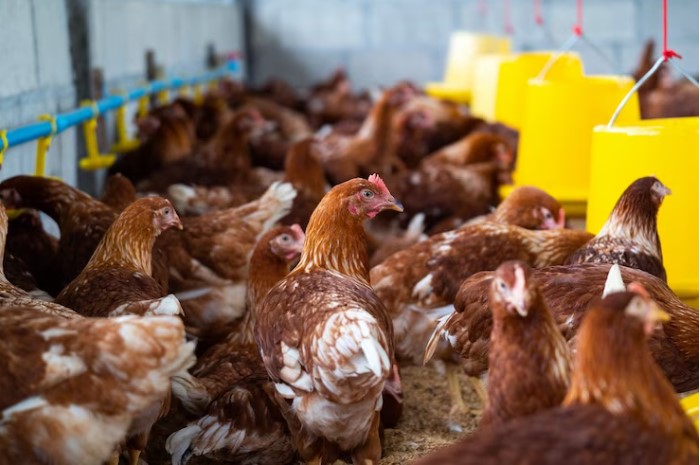
Let’s dive in!
Poultry Farming Scope: What To Expect In Poultry Farming In Kenya
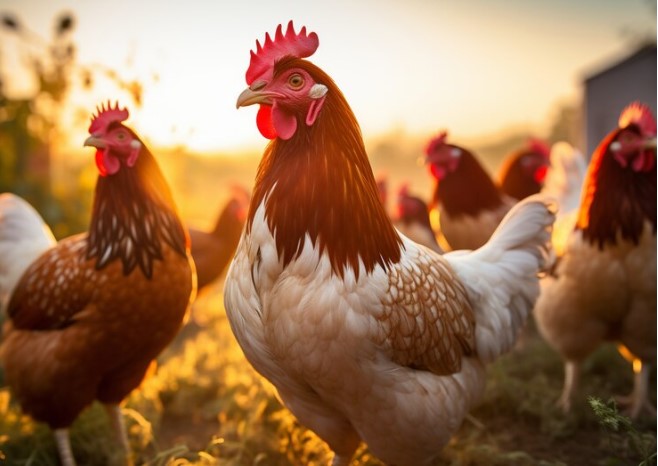
What is poultry farming in Kenya, and what does it entail?
Poultry farming is the rearing of birds for meat production or eggs. You can decide to go organic or inorganic, depending on your goals.
Usually, it is categorized into three
- Small Scale where 1 to 1000 birds are reared
- Medium-scale poultry farming, where 1001 to 10,000 birds are raised
- Large scale with a capacity of 10,000 and above
Types of Birds: Poultry Farming in Kenya Kienyeji, Broilers, Layers, and Improved
You can keep different kinds of birds, whether a small or large-scale poultry farmer in Kenya. They include;
Broilers
Broilers are reared for meat only and usually weigh 1.75 kgs at maturity. Their maturity duration is between 35 to 50 days.
The best-performing broilers in Kenya include Arbo Acres, Hypeco, Kenchic, and Hybro.
Layers
Layers are kept for eggs and usually perform best between 18 to 80 weeks of their life. After that, you should sell them to avoid higher costs than returns.
The best layers in Kenya include Isa Brown, Ross Breeds, Shaver Star Cross, and Kenchic layers.
Improved Breeds
Improved breeds are the Kienyeji chickens, famous for their exceptional productivity and disease resistance. This category’s breed includes Sasso, Rainbow Roaster, Kuroilers, KARI improved chicken, and Kenbro.
Duck Types
Poultry farming is not limited to chicken rearing; you can raise ducks too. Some of the best-performing duck types include White-Faced Duck, White-backed duck, Spur-Winged goose, Knob-Billed duck, and Ruddy Sheldock.
Turkey Farming in Kenya
Did you know Turkey farming is more profitable than chicken rearing? However, Kenyans invest in it on a small scale.
Turkeys available in the market include Black turkey, Beltsville, Blue State, Bourbon Red, and Broad-Breasted whites.
Methods of Poultry Farming in Kenya
- Free Range Poultry Farming: In this method, birds are allowed to roam around the farm to fend for food and water.
- Battery Poultry Farming: Farmers who perform this technique place each bird in its cage and then put food and water in front of the cage for easy feeding.
- Deep Waste Poultry Farming: This method involves rearing chickens indoors. The farmer provides food and water in the coop.
- Fold Method: The birds live in folds with feeding and water troughs attached outside every layer.
Why Invest in Poultry Farming?
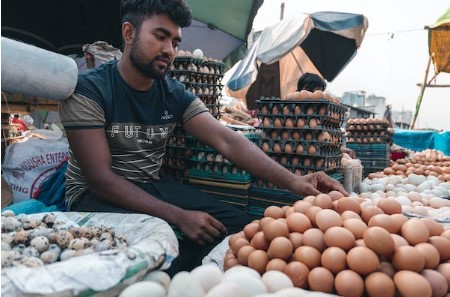
So, why do farmers invest their money in poultry farming?
1. High Demand for Poultry Products
From meat to eggs, poultry farming has been a critical business in the country, with most people using these foods daily.
Moreover, chicken meat is processed into other consumables, such as sausages. The versatility of the cooking methods also provides different staples such as soup, choma, and stew.
Eggs are way more affordable than other protein sources like beef, chicken, meat, and fish, among other substitutes. So their demand continues to increase even when there’s scarcity; people still purchase them at inflated prices.
As a result, you can be assured you will enjoy a ready market for your products!
2. Poultry Farming Has Produced Millionaires
Poultry farming is among the most lucrative agribusiness that has produced multiple millionaires.
This proves that, when done right, poultry farming can help you accomplish your financial goals.
But remember, you have to learn how it works and the best practices to achieve such success.
3. Poultry Farming Education and Training are available
One of the main motivations for starting a successful poultry farming business in Kenya is easy access to quality training and education.
The government and different farming organizations have established first-rate training for farmers to ace this sector.
Some key areas they cover include breeding, hatching eggs, caring for young ones, vaccination administration, and the ideal conditions for rearing different types of poultry(Kienyeji, broiler, and layer).
So, whether it’s your first time encountering chicken or re-entering the business, you can learn everything you need to start a successful poultry business in Kenya.
4. You Can Start Small
Compared to most agribusiness ideas in Kenya, poultry farming does not require intensive capital. You can begin with a few chics and expand gradually from here.
With as little as Kshs 30,000, you can start a small-scale poultry farm. So, don’t shy away from investing in the poultry farming business.
How To Start Poultry Framing In Kenya
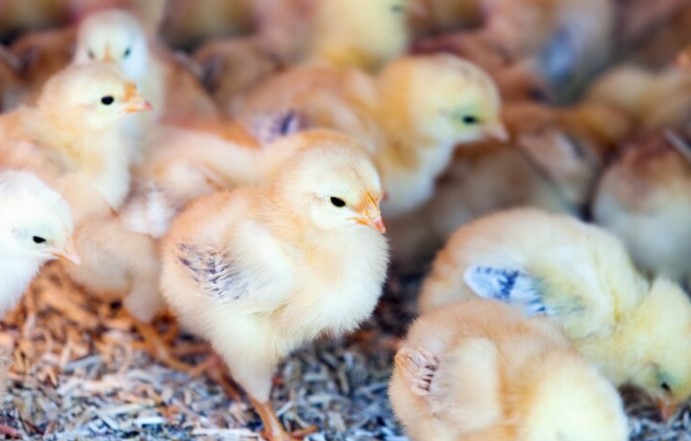
How much does it cost to start poultry farming in Kenya?
The cost of poultry farming includes
1. Land Acquisition
This is usually the main requirement of poultry farming. Those with land in rural areas can easily start their business if they have the start-up capital.
Suppose you’re renting a place in an urban area; you can negotiate with your landlord to lease a space within the compound if the site is spacious enough for poultry farming.
Land acquisition costs vary from place to place, with some accessing land for free while others have to lease at an annual fee of Kshs 6,000 and above per quatre acre.
Depending on your land access, you can weigh the most profitable option depending on the leasing fee and the size of farming you can put up there.
2. Housing
The cost of unit construction varies with the number of birds. The more birds, the higher the price, and the fewer the birds, the lower the cost.
Another critical consideration when engaging a carpenter to help you make a hen house is the availability of raw materials.
If you have leftover nails, iron sheets, mesh wire, and wood from your house or fence construction, you can utilize them to reduce the housing cost.
3. Poultry Equipment
Your birds have unique requirements, including a feeding area, water spaces, and warmth sources.
Hence, you should include them in your budget. Some of the main poultry equipment include:
- Egg incubators
- Layers chicken cages
- Feed making machines
- Poultry slaughtering tools
- Transport crates
- Debeaking machine
- Vaccination equipment
- Brooders( structures that provide warmth for chics)
For a small-scale farmer, you may part with Kshs 10,000 and above, depending on the type of birds and capacity.
4. Vaccination
Vaccination is an essential part of poultry farming. Overlooking this may result in exposure to disease outbreaks, leading to massive losses.
So, how much does vaccination cost?
Vaccinating 1,000 chics will cost you Kshs 8,000 from Newcastle, Gumboro, dewormers, antibiotics, Fowl pox, and vitamins.
Again, this can be lower if you have fewer chics or more if you’re rearing more than 1,000 chics.
5. Feeding
The feed for every chicken size is different
- Birds between 0 to 8 weeks feed on chic mash or chic mash starter costing Kshs 3,500 per bag
- 8 to 20 weeks, birds feed on growers mash, which costs Kshs 2500 per bag
- Birds 20 weeks and above old feed on layers of mash
6. Baby Chickens or Chics
Chics have a standard price of Kshs 100 per bird. However, as they grow in size, their prices increase gradually.
You can obtain your chic costs by multiplying the number you’re starting with by Kshs 100.
Also Read:
How Can I Succeed in Poultry Farming In Kenya?
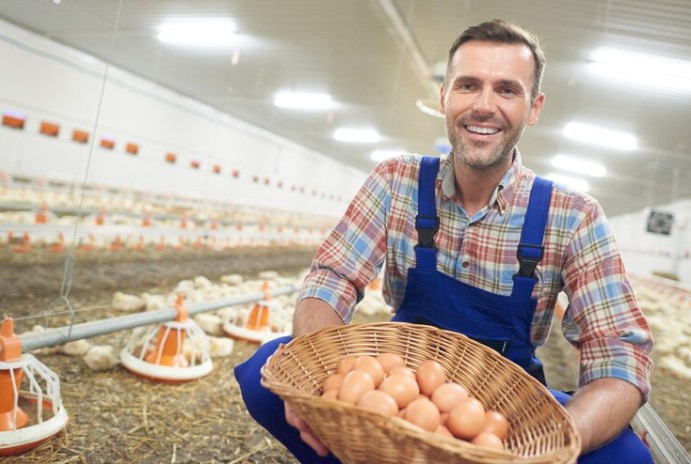
While bird rearing has made some millionaires, other farmers complain of huge losses and dispose of almost every element after a short while.
Want to reap big from poultry farming?
Here is how to succeed in poultry farming in Kenya
Tip 1. Acquire the Best-Performing Breed
You’re highly likely to purchase a vulnerable bird without understanding how each breed performs. One that can’t withstand disease outbreaks, with slow growth rates and low returns.
As a result, you may undergo losses. The best way to find a breed is by studying the market demand, local regulations, and climatic conditions.
You also must consider the feed needs, disease resistance, egg size, and growth rate to ensure you’re investing in a high-income bird.
Tip 2. Feeding and Nutrition: What To Do
One of the main reasons most farmers quit poultry farming before they can reap is feeding and nutrition. Usually, this is the second most important element after health once you establish a proper unit structure.
However, without budgeting for the birds’ feed requirements, they run out of the necessary growth propeller, leaving them with no choice except to sell their premature chicken.
To avoid this, you must ensure you budget and get feed for your birds. Check whether you provide your birds with a balanced diet of carbohydrates, proteins, vitamins, and minerals.
Also, remember to implement the feeding program according to the correct schedule. This way, you will boost the bird’s growth rate and weight, raking in massive profits.
Tip 3. Adhere To The Housing Requirements
Housing is a crucial element of your poultry farming business. The proper structure will give your birds enough space to feed and rest. It will also foster favorable conditions for them to thrive.
So before you design the unit structure, ensure you consider
- The size of your birds
- The number of birds
- Sanitation
- Disease prevention
- Sanitation
- Feeders
- Light exposure
- Feeders
- Predator prevention
Tip 4. Record Keeping
Record keeping gives a real view of your farm’s productivity, performance, and profitability.
Like any other business, record keeping gives you accurate information on what breed is performing best and monitors the daily occurrences to determine whether the investment is worth it.
So, always keep records to help you identify the business direction in the future(what breed you should add to your farm).
Tip 5. Invest in Your Poultry’s Health
An outbreak can clear all your birds in one occurrence. So, investing in your poultry’s health is necessary to succeed in this venture.
Some of the ways you can boost your poultry’s health include
- Diagnosing and treating diseases
- Implement biosecurity measures such as quarantining new birds and disinfecting the unit
- Hiring veterinaries to perform regular checkups
- Vaccinating your birds against disease outbreaks such as Gumboro and Newcastle
Tip 6. Develop an Effective Marketing Strategy
Marketing is a prerequisite for any poultry farm’s success. Reason? Anytime the birds reach maturity or produce eggs, they need a market to supply so they can focus on their farm.
As a result, you should establish good relationships with local traders, poultry suppliers, and individual buyers both in and outside the country.
In addition, you should leverage advertising and product branding to establish yourself as a renowned poultry and eggs supplier nationwide.
Tip 7. Acquire Poultry Education and Training
Quality training and education equip you with the relevant knowledge and skills to manage a poultry farm.
Moreover, the emerging trends in this sector demand you to keep advancing your skills to cope with the challenges and leverage the technology.
Besides training or acquiring education, you should join poultry farming groups and associations to learn how to maximize profitability and the quality of your products.
Frequently Asked Questions
1. How Much Do Poultry Farmers Make a Month in Kenya?
Small-scale poultry farmers make between Kshs 10,000 and Kshs 25,000 every month. As you expand your farm, you can earn Kshs 50,000 and above.
2. Is Poultry Farming in Kenya Profitable?
Yes, poultry farming in Kenya is profitable. However, you must observe the prerequisites, including proper housing, feeding, vaccination, and marketing.
Conclusion
Agribusiness is among the most lucrative industries. For instance, poultry farming in Kenya has many success stories. But how do you ace this?
Implementing the success tips will ensure you reap massive profits.







